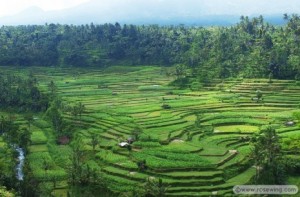
 Continuing this series’ recent theme of ways to make policy work, let’s consider a broader view of what policy is and therefore who gets to create policy. It’s not just the elected officials with legislation in their job description. For one, those people are accountable to the people who elected them. Second, formal written policy is not the only kind that is effective – informal rules, community traditions, and other forms of policy are often best. Plus, these types of policy offer the general public a change to be involved in creation and implementation.
Continuing this series’ recent theme of ways to make policy work, let’s consider a broader view of what policy is and therefore who gets to create policy. It’s not just the elected officials with legislation in their job description. For one, those people are accountable to the people who elected them. Second, formal written policy is not the only kind that is effective – informal rules, community traditions, and other forms of policy are often best. Plus, these types of policy offer the general public a change to be involved in creation and implementation.
There is a large literature on the value of participation in policymaking, especially in fisheries (Silver and Campbell 2005). Here I will focus on three particularly important aspects of participation to management at the scale of an estuary, where I work: a) additional knowledge creation, b) community buy-in, and c) tighter feedback loops. These are important for relatively large-scale systems with several communities and many variables that could affect management.
Participatory research increases the community’s capacity to create local environmental knowledge (Fischer 2002). Local knowledge is created through hands-on experiences and observation and often provides information at a level of detail and over a time frame that traditional scientific methods cannot possibly measure (Ellis and Waterton 2005). Despite the perception that local ecological knowledge is often in conflict with traditional science, empirical studies comparing the two have found that they more often than not come to similar conclusions (Wilson 2003). In addition, since production of the knowledge comes from different methods, the knowledge is complementary, providing a more complete picture of the problem at hand when local and scientific knowledge is combined (Watson-Veran and Turnbull 2005).
Community buy-in is formed through processes of legitimization and building ownership of the resource. Use of local knowledge created within familiar ways of knowing makes the policy easier to integrate into local norms and values because it directly speaks to the type of evidence wanted by community members to change their actions (McCay and Acheson 1987). The policy that is created as an end product of a participatory process is therefore in a common language that can continue to serve as a tool to promote discussion and continue moving forward with conservation efforts (Kemp-Benedict, Bharwani et al. 2010). Time invested by community members, production of continued discussion, and raised awareness of environmental issues creates a sense of ownership over the resource. Participation creates an ethic of stewardship and a sense of responsibility toward future protection of the resource in question (Jasanoff 2004).

Finally, participation leads to tighter feedback loops between the social and natural sides of a system. Lansing (2006) describes the fast feedback loops allowed by traditionally managed irrigation in Bali. Because farmers are invested in their own management, they constantly look for improvements in the irrigation system, either from direct neighbors or from other people in the larger mountain ecosystem during annual religious gatherings. The traditional management was disrupted by the Asian Development Bank pushing Green Revolution technologies. The solution to pests, which have the capability of eating 75% of the rice yield in a single outbreak, was shifted to pesticide use instead of coordinated field flooding. The pests eventually gained resistance to the pesticides in use, but since an international body was making management decisions from afar, they failed to shift their management strategies based on reports of crop loss. Eventually, the Bank realized the utility of the local system and now fosters the connection between farmers and their managed agricultural landscape by supporting traditional management.
Many policy experts will offer a word of warning about putting too much faith in participation. Sometimes community members don’t want to participate, they don’t have the expertise, or they’re split down the middle on an issue and unwilling to compromise. So participation is not a policy panacea (in fact, Ostrom will argue that there is no such thing), but it is, as of now, an untapped resource in policy creation. As a result, it may be useful in myriad situations in which it hasn’t yet been tried.
Great post.
I’d like to call your attention to another way to support good ocean policy – support candidates who vote for the oceans. Ocean Champions, “the only political voice for the oceans,” is a Political Action Committee (PAC) that supports pro-ocean candidates and fights the worse environmental offenders.
They keep up with ocean-related legislation and put pressure where and when needed to get it through Congress. Check them out: http://www.oceanchampsions.org